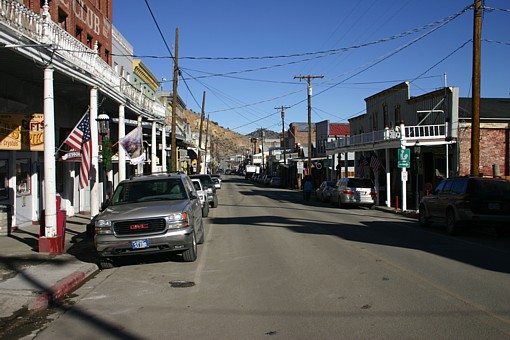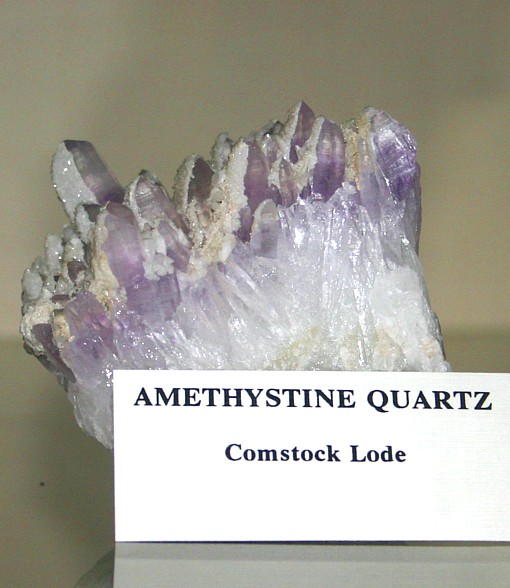The first winter after the discovery of silver: 1859 60, was one of the severest the country has known. As I have already stated, there were very few buildings in Virginia City that were worthy of the name. The majority of the inhabitants lived in mere shanties and in underground caves and dens -a tribe of troglodytes. , Many men who were in the country during the summer and fall, left for California before winter set in, some with the intention of returning and others cursing the country. These last were men who had for years been working in the placer mines of California and who had rushed over the mountains to Washoe as soon as news reached them of the great wages being taken out with rockers. They supposed there were extensive placer mines in the new region. When they found none but such as had already been gutted by the Johntowners and the Chinese who had worked about the mouth of Gold Canyon, they wanted nothing more to do with the country. They had no taste for working quartz veins or for deep mining of any kind. They lingered in the country till toward fall, hunting for rich pockets in veins of quartz that appeared to be gold bearing, then rose up and in a flock crossed the Sierras to the more congenial hills flats, and gulches of the "Golden State."
Many persons, however, remained at Virginia City, Gold Hill, Silver City, and Dayton, and a rough time they all had of it before spring. The first snow fell on the 22nd of November; it snowed all day, and four days later again set in, when snow fell to the depth of five or six feet, cutting off all communication between Gold Hill and Virginia, though the two towns were but a mile apart.
The worst of the winter was between this time and the 1st of February. In December many cattle were dying of cold and hunger about Chinatown (Dayton) where they had been sent to find a living in the valley along the Carson River. Not only cattle, but also horses, donkeys, and animals of all kinds died of cold and hunger. Most of them starved to death. It was impossible to procure food for them. The newcomers who swarmed across the Sierras spread along the Comstock range for miles, pitching their tents and establishing their camps wherever wood and water were to be found. Having thus established their headquarters they scouted out on prospecting expeditions in all directions among the hills. In places on the ravines and in the flats, where good water and some grass were to be found, there were to be seen considerable villages of tents and brush shanties. Of evenings, when the prospectors returned from the hills, there was a big time among them, as they exhibited specimens of ore from the ledges they had discovered and compared notes. All gathered about and opinions were passed in regard to the value of the ores brought in. The miners all did their own cooking, but this was no great task, as when you had mentioned slapjacks, beans, bacon,, and coffee, you were at the bottom of the bill of fare.
A few men, however, in every camp, developed a decided genius in the art culinary and concocted some wonderful dishes, the raw material at hand considered. About three-fourths of the prospecting miners who came over from California, packed their traps on the backs of donkeys, and, driving these before them, boldly, if not swiftly, scaled the Sierras. These donkeys became a great nuisance about the several camps. All became thieves of the most accomplished type. They would steal flour, sugar, bacon, beans, and everything eatable about the camp. They would even devour gunny sacks in which bacon had been packed, old woollen shirts and almost everything else but the picks and shovels. The discovery of the silver mines in Nevada gave all an excellent opportunity of gratifying their migratory instincts, and miners and men of all classes and all trades and professions flocked over the Sierras, in the spring of 1860. At first they came on foot, driving donkeys or other pack animals before them, or on horseback, riding where they could and leading their horses where the snow was soft, but soon sleighs and stages were started, and in some shape floundered through with their passengers.
Saddle trains for passengers were started, however, before vehicles of any kind began to run, and the snow passed over was in many places from thirty to sixty feet in depth. At first there was not sufficient shelter for the newcomers, and they crowded to overflowing every building of whatever kind, in all the towns along the Comstock range. But houses were rapidly being built in all directions, and the weather soon became warm enough to allow of camping out in comfort almost anywhere ; men who had rolled up in their blankets and slept on the snow, high up on the frosty Sierras, did not much mind sleeping in the open air on the lower hills. The newcomers from California not only prospected in the neighborhood of Virginia, Gold Hill, Silver City, and all the hills surrounding these towns and the Comstock, but scouted out in all directions to the distance of from fifty to one hundred miles. They generally went in parties of from five or six to a dozen or more men, and when they traveled any great distance, were mounted, and had pack animals with them, to carry their provisions and tools. The excitement in regard to the mines discovered and being worked, those newly found and those yet to be found in regard to town sites, mill sites and all manner of property in the new land was at its greatest height, when that occurred which for a time paralyzed every industry, and alike brought business and prospecting to a stand.
Owing to the breaking out of the war with the Piutes, and to the fact that th'e precious metals existed in solid quartz, and, in most instances, far beneath the surface, where it could only be reached by means of deep shafts or long and expensive tunnels, many men who came to the country early in the spring of 1860, left in disgust. ; Hundreds of prospectors came in the expectation of being able to find rich placer-mines, or at least large deposits of decomposed quartz, rich in gold, which they might wash out with rockers and sluices, as they were accustomed to wash the auriferous gravel of the California gold-fields. Being unable to find anything of this kind, except the ground already taken up and being worked at Virginia and Gold Hill, these men said that-, though rich, the mines were of "no extent," and made haste to return to those they had left on the western slope of the Sierras, in the Golden State.
Return
to The Nevada Mining Rush Page:
Nevada Gold Rush Mining History


